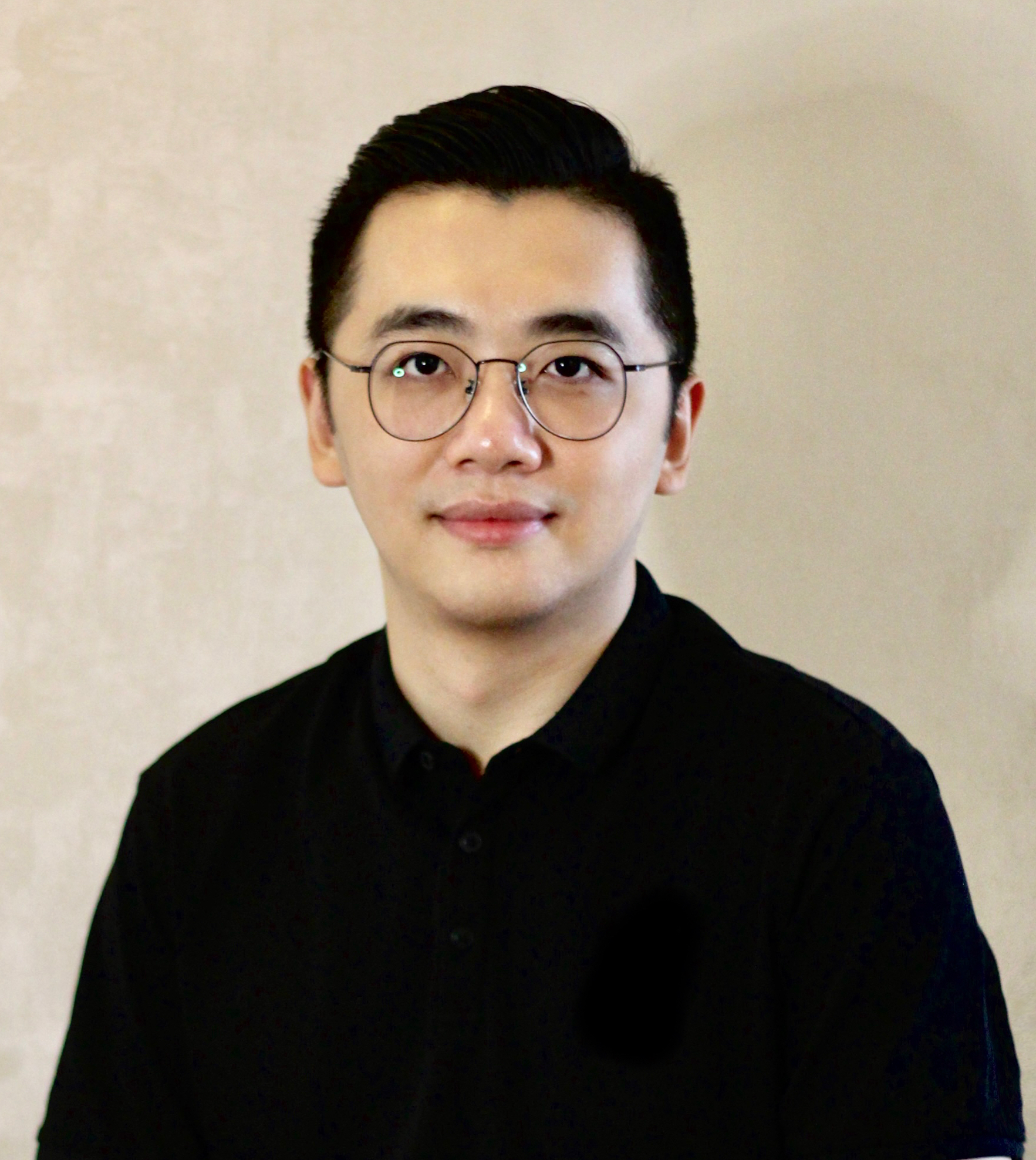| 杨启凡 副教授 博士生导师/硕士生导师 个人邮箱:yangfjnu@163.com 主教课程:现代教育技术;教育游戏设计与开发;教育电视节目编导 研究方向:教育机器人;人工智能教育应用; 计算机教育应用;VR、AR教育应用 |
一、教育背景 台湾科技大学 数位学习与教育 博士学位 二、社会兼职 国家自然科学基金通讯评审 GCCCE全球华人计算机教育应用大会分工作坊主席 《Computers & Education》(SSCI)审稿人 《SYSTEM》(SSCI)审稿人 《Interactive Learning Environments》(SSCI)审稿人 《Innovation in Language Learning and Teaching》(SSCI)审稿人 《Humanities & Social Sciences Communications》(SSCI)审稿人 《LAND》(SSCI)审稿人 《Computers & Education: Artificial Intelligence》(Scopus)审稿人 三、教育主张或教学主张 未来教育是技术支持下的人本教育,是学生一生的幸福和成长的基石。 四、主要论文 1. Yang, Q. F., Chang, S. C., Hwang, G. J*., & Zou, D. (2020). Balancing cognitive complexity and gaming level: Effects of a cognitive complexity-based competition game on EFL students' English vocabulary learn-ing performance, anxiety and behaviors.Computers&Education,148,103808.https://doi.org/10.1016/j.co-mpedu.2020.103808 (SSCI Q1 , CAS一区Top) 2. Zhao, J. H., Yang, Q. F*., Lian, L. W., & Wu, X. Y. (2024). Impact of pre-knowledge and engagement in robot-supported collaborative learning through using the ICAPB model.Computers&Education,217,105069.https://doi.org/10.1016/j.compedu.2024.105069 (SSCI Q1 , CAS一区Top) 3. Yang, Q. F., Lian, L. W., & Zhao, J. H*. (2023). Developing a gamified artificial intelligence educational robot to promote learning effectiveness and behavior in laboratory safety courses for undergraduate students. International journal of educational technology in higher education,20(1),18. https://doi.org/10.1186/s41239-023-00391-9 (SSCI Q1 , CAS一区Top) 4. Zhao, J. H., Chen, Z. W., & Yang, Q. F*. (2024). I do and I understand: A virtual reality-supported collaborative design-assessing activity for EFL students. System, 121, 103213. https://doi.org/10.1016/j.system.2023.103213 (SSCI Q1 , CAS一区Top) 5. Zhao, J. H., & Yang, Q. F*. (2023). Promoting international high‐school students' Chinese language learning achievements and perceptions: A mind mapping‐based spherical video‐based virtual reality learning system in Chinese language courses. Journal of Computer Assisted Learning, 39(3), 1002-1016. https://doi.org/10.1111/jcal.12782 (SSCI Q1 , CAS二区Top) 6. Yang, Q. F., Lin, H., Hwang, G. J*., Su, P. Y., & Zhao, J. H. (2022). An exploration-based SVVR approach to promote students’ chemistry learning effectiveness. Interactive Learning Environments. https://doi.org/10.1080/10494820.2022.2135106 (SSCI Q1) 7. Yang, Q. F., Lin, C. J., & Hwang, G. J*. (2021). Research focuses and findings of flipping mathematics c-lasses: a review of journal publications based on the technology-enhanced learning model. Interactive Learning Environments, 29(6), 905-938. https://doi.org/10.1080/10494820.2019.1637351 (SSCI Q1) 8. Yang, Q. F., Hwang, G. J*., & Sung, H. Y. (2020). Trends and research issues of mobile learning studies in physical education: a review of academic journal publications. Interactive Learning Environments, 28(4), 419-437. https://doi.org/10.1080/10494820.2018.1533478 (SSCI Q1) 9. Wu, W. L., Hsu, Y*., Yang, Q. F*., Chen, J. J., & Jong, M. S. Y. (2023). Effects of the self-regulated strategy within the context of spherical video-based virtual reality on students’ learning performances in an art history class. Interactive Learning Environments, 31(4), 2244-2267. https://doi.org/10.1080/10494820.2021.1878231 (SSCI Q1) 10. Zhao, J., Hwang, G. J*., Chang, S. C., Yang, Q. F., & Nokkaew, A. (2021). Effects of gamified interactive e-books on students’ flipped learning performance, motivation, and meta-cognition tendency in a mathematics course. Educational Technology Research and Development, 69, 3255-3280. https://doi.org/10.1007/s11423-021-10053-0 (SSCI Q1) 五、科研项目 1.基于交互式人工智能教育机器人的应用场景与学习者感知研究,国家自然科学基金青年项目(主持) 2.福建省创新智能技术融合下的新型教学模式与评价方式,福建省教育科学规划基础教育高质量发展重点委托课题(主持) 3.智能设备融入教育对学习者认知能力的影响研究,福建省社会科学基金青年项目(主持) 4.新时代面向中小学生人工智能素养提升的STEM课程设计研究,全国教育科学规划(参与) 5.人工智能交互式叙事促进知识整合与迁移的探索性研究,教育部人文社会科学研究一般项目(参与) 6.“智能+”背景下新师范教育创新改革研究,福建省教育厅一般项目(参与) 7.智能时代下阅读的促进与推广,社科横向(参与) 8. 教育机器人关键技术和功能的分析与教学测评研究,福建省社会科学基金一般项目(参与) 9. 海峡两岸高校教师教学和学生学习效果评价比较研究,福建省教育厅,(参与) 六、获奖情况 福建省引进高层次人才(C类) 2021-2022学年校优秀班主任 2020-2021学年校优秀班主任 七、学术交流 1. GCCCE全球华人计算机教育应用大会,2024.6,重庆 2. 中国教育技术协会信息技术教育专业委员会第十六届学术年会,2021.7,福建福州 3.2020教育技术国际论坛,202012,安徽芜湖 4.International Conference on Open and Innovative Education(ICOIE),202007,中国香港 5. International Conference on Open and Innovative Education(ICOIE),201907,中国香港 6. Conference on Digital Learning Strategies and Applications (DLSA 2019),201904,中国台湾
| |

